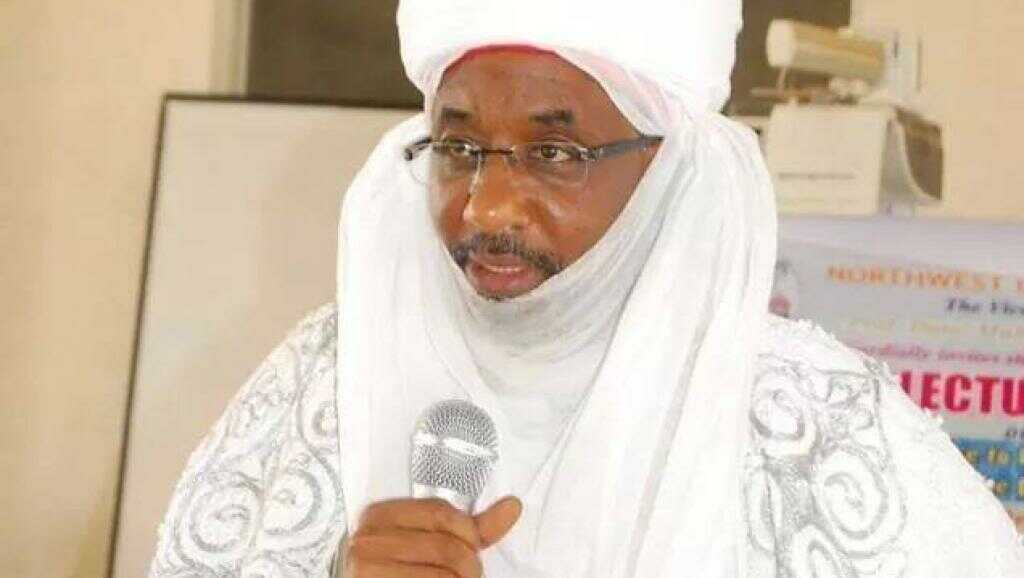Also joined in the motion with suit number: FHC/ABJ/CS/357/2020 are the Attorney-General of Kano State and Attorney General of the Federation as 3rd and 4th respondents respectively.
The former emir had, in a motion -ex-parte dated March 12 by his team of lawyers, sought an interim order of the court releasing him from the detention and/or confinement of the respondents and restoring his right to human dignity, personal liberty.
NAN reports that Sanusi, after his banishment from Kano, was confined to Awe town, Nasarawa State.
The presiding judge, Justice Anwuli Chikere, however. ordered his immediate release.
Although the deposed emir had since been released after the court ruling, the case is still in court as the originating motion was yet to be determined by the court.
On March 31, the matter could not come up and the case was therefore fixed for June 3.
But the industrial action embarked upon by the judiciary workers nationwide to demand for financial autonomy for the judiciary hindered its hearing.
NAN reports that JUSUN on April 6 directed its members to shut down all courts across the country.
NAN reports that a verdict of the Federal High Court in Nigeria’s capital, Abuja, had in January 2014 held that financial autonomy for the judiciary is a constitutional provision that must be complied with by the executive branch of government.
NAN reports that on May 23, President Muhammadu Buhari signed into law the Executive Order to grant financial autonomy to the legislature and the judiciary across the 36 states of the country.
The order also mandates the Accountant-General of the Federation to deduct source amounts due to state legislatures and judiciaries from the monthly allocation to each state for states that refuse to grant such autonomy.
The Attorney General of the Federation Minister of Justice, Abubakar Malami, said Executive Order No. 10 of 2020 made it mandatory that all states of the federation should include the allocations of both the legislature and the judiciary in the first-line charge of their budgets.
According to the AGF: “A Presidential Implementation Committee was constituted to fashion out strategies and modalities for the implementation of financial autonomy for the State Legislature and State Judiciary in compliance with section 121(3) of the Constitution of the Federal Republic of Nigeria, 1999 (as Amended).”
NAN reports that the Nigeria Governors Forum said it will start implementing financial autonomy for the judiciary latest by May ending, a pledge that indicated that an end to the ongoing strike that has crippled the nation’s judiciary may be in sight.
The governors also called on striking members of the JUSUN to call off their two weeks old strike then.
The Chairman of the NGF, Governor Kayode Fayemi of Ekiti State, gave this assurance in an interview with journalists after meeting with “stakeholders” from the state judiciary and legislature at the Presidential Villa in Abuja.
Fayemi said the modalities for the implementation were worked out at the meeting held at the Presidential Villa.
According to him, the meeting, chaired by the Chief of Staff to President Buhari, Ibrahim Gambari, was attended by the Solicitor-General of the Federation, representatives of the judiciary, Conference of Speakers and House of Representatives.
The first line charge status, which is being respected by the Federal Government in respect of the federal judiciary, entitles the state judiciaries to get funds due to them directly from the Federation Account.

 Entertainment6 days ago
Entertainment6 days ago
 Health1 week ago
Health1 week ago
 Health4 days ago
Health4 days ago
 Football1 week ago
Football1 week ago
 Football1 week ago
Football1 week ago
 Crime5 days ago
Crime5 days ago
 Education6 days ago
Education6 days ago
 Crime1 week ago
Crime1 week ago

